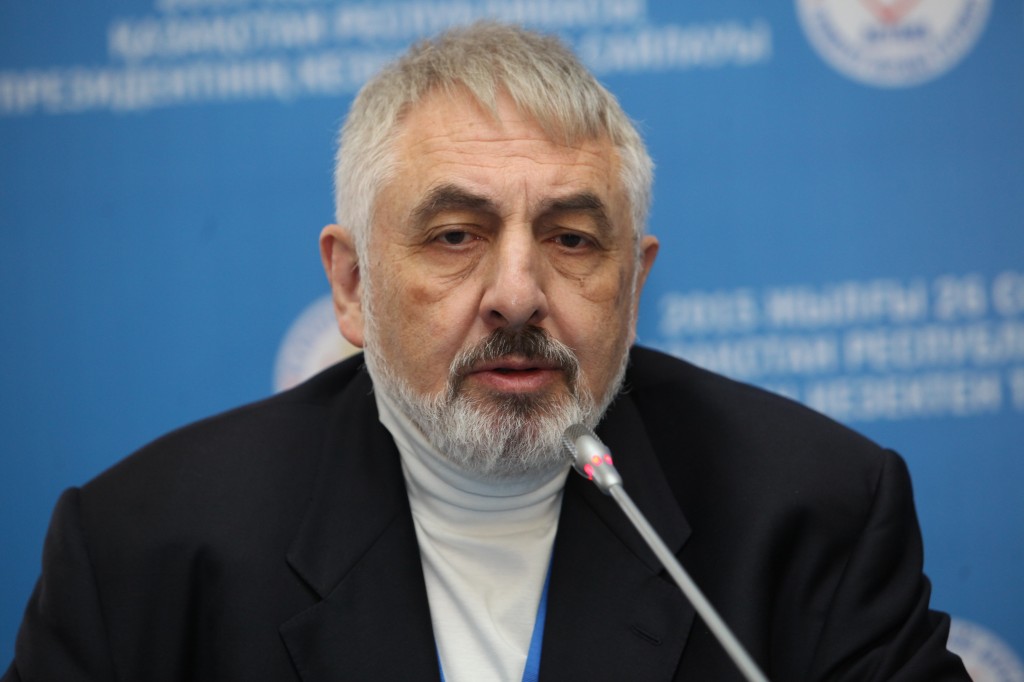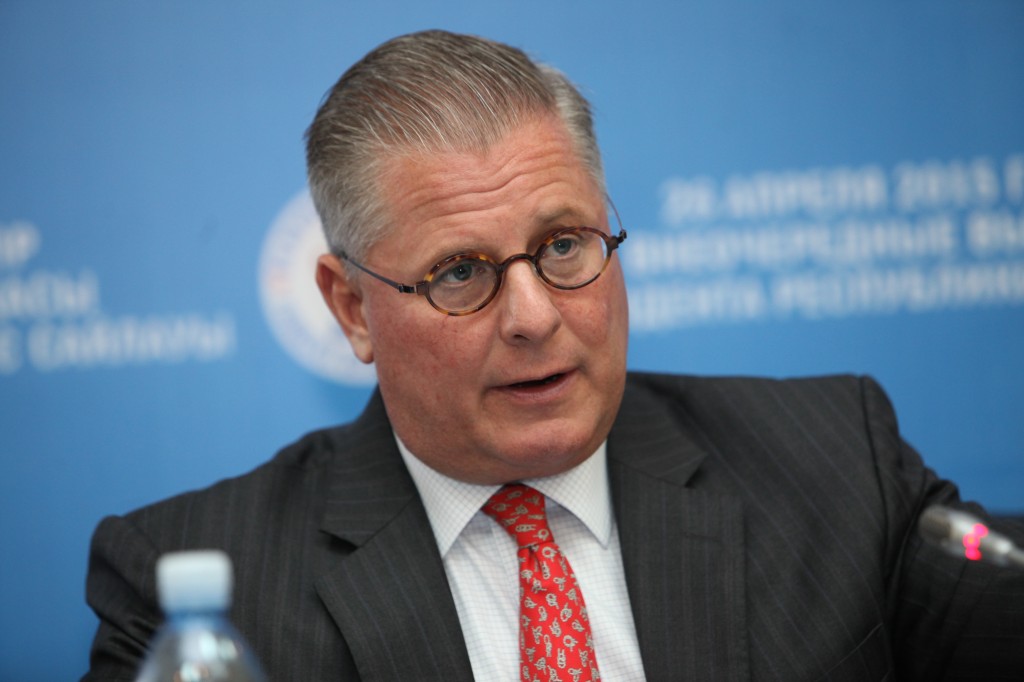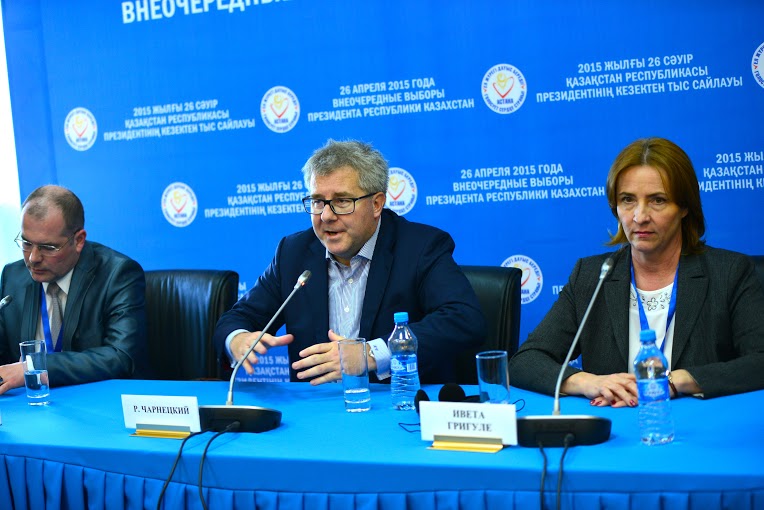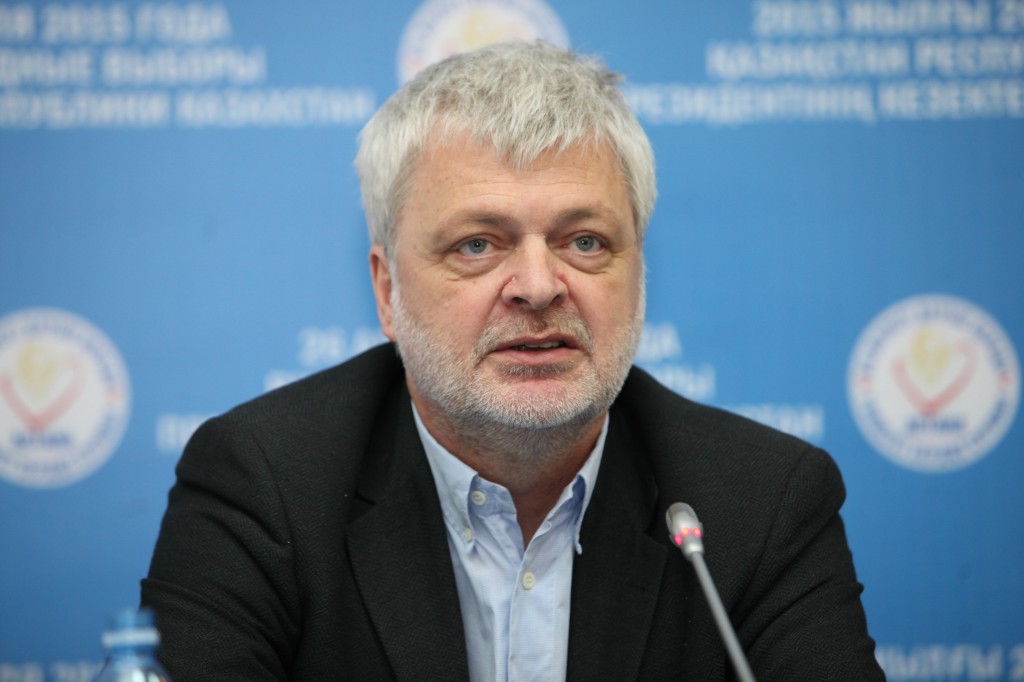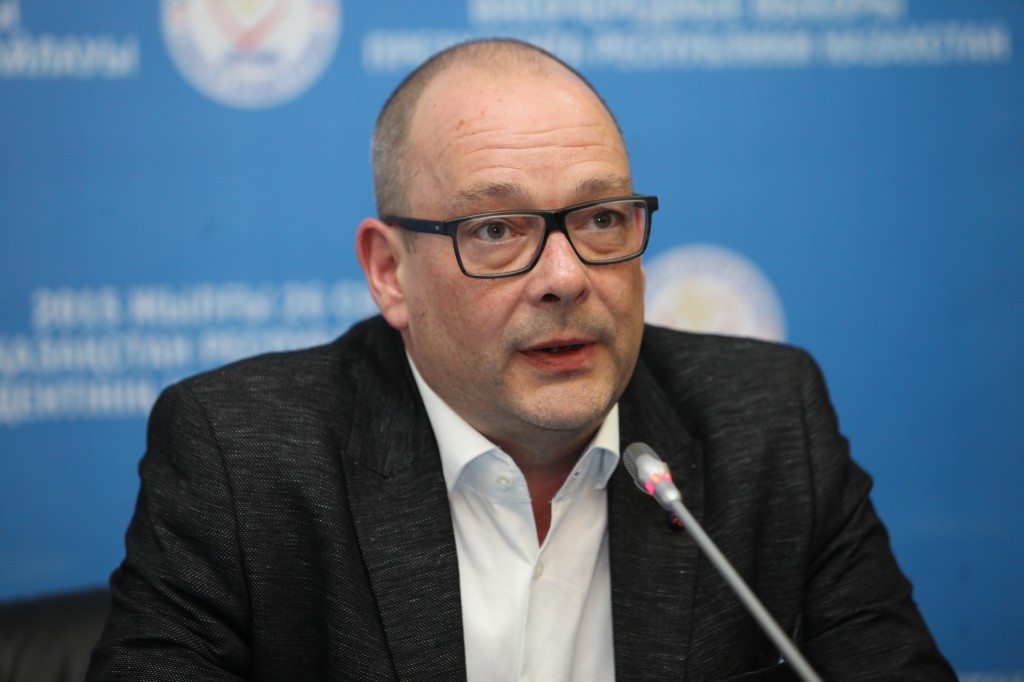ASTANA – On April 27, the first day of post-election analysis in Kazakhstan, foreign observers continued sharing the findings of their missions to observe the poll putting the development of electoral process in perspective and in the context of the country’s overall political transformation.
One of the more detailed assessments came from an the independent international observer mission of three Washington and European based analysts and experts on Central Asia, Vladimir Socor, Richard Weitz and Daniel Witt.
Their statement, distributed to the media, commended the conduct of the presidential election as “another forward step in Kazakhstan’s movement toward consolidating democratic electoral procedures and, on that basis, building the institutions of representative democracy.”
Vladimir Socor is a senior fellow of the Washington based Jamestown Foundation currently residing in Munich, Germany, Richard Weitz is a senior fellow and director of the Centre for Political-Military Analysis at Hudson Institute in Washington. Daniel Witt is the president of the International Tax and Investment Centre (ITIC), which is also located in Washington and is an independent, non-profit research and educational organisation founded in 1993 to promote tax reform and public-private initiatives to improve the investment climate in transition and developing economies.
The group said their conclusions came from their visits to a combined total of 33 polling stations in Astana and the Akmola oblast, in two of which they also witnessed vote counts. The overall impression was of an “orderly, well-organised and transparent balloting process,” they said as they presented their report at the information centre for foreign observers at the Duman Hotel in Astana.
The assessment said that high voter turnout rates are “traditional in Kazakhstan’s elections generally and presidential elections in particular.” According to the group, pre-election surveys, including “independent research by foreign-based pollsters, as well exit polls on the voting day, foreshadowed President [Nursultan] Nazarbayev’s re-election by landslide margins.”
They admitted receiving two complaints of “inefficient work by election commission members” from individual voters. The monitors saw the roots of that in “Kazakhstani voters’ traditional habit of flocking to the polls in the early hours of the voting day,” which quite regularly “result[s] in massive overcrowding at many polling stations at the time.” They also posited that the unprecedentedly high turnout in this election and high approval rating of the incumbent are a reflection of “performance-based confidence in the president” and “preference for political stability” with which his name is closely associated.
The American monitors disagreed with the view that Nazarbayev’s opponents in the race – Turgun Syzdykov of the Communist People’s Party and Abelgazy Kussainov, a self-nominee and chair of the Federation of Trade Unions – were deprived of a level-playing field. “These two candidates did conduct political campaigns with media publicity and no restrictions,” their assessment said.
At the same time, Nazarbayev was in a position to capitalise primarily on his long-term approval rating, apart from “the incumbency advantage,” which benefits current leaders “everywhere.”
The experts said this election stood out because of the fact that observers from nongovernmental organisations managed to send representatives to every polling station in the country – a clear reference to the National Public Commission for Control of Elections – as their presence “increased transparency of the balloting and that of vote-counting procedures.”
Moving to the election’s “institutional implications,” the group argued that the high turnout and an almost uniform vote in favour of the current leader demonstrated “a national consensus in action.” The latter is based on the “confidence [Nazarbayev] generates in the continued stability of Kazakhstan amid growing international disorder.”
“Significantly, Kazakhstan’s ethnic Russian population partakes in this national consensus for stability and orderly development of the country,” the Socor, Weitz and Witt highlighted.
The statement also emphasised that the “quality of elections (as of all institution-building in Kazakhstan) should not be assessed by Western (European) standards or ‘benchmarks.’” The argument is that such terms of comparison would “result in misleading assessments of Kazakhstan’s reform efforts,” as they “should, objectively, be assessed in relation to Kazakhstan’s historical legacies and its current societal development.” Looking through this prism, the experts believe the latest election confirmed that the “development of representative institutions and their modernisation is advancing in a process of evolution.”
The mission’s assessment expressed hope that the institutional reforms Nazarbayev is promising to implement are “followed up closely” to make sure Kazakhstan strengthens its multi-party political system and builds strong democratic institutions.
Socor, Weitz and Witt concluded their assessment by stating that it is “ultimately, the people of Kazakhstan and their democratically elected leadership” who are “entitled to determine the scope and pace of the country’s institutional transformations.”
Among other assessments voiced by individual observers,Vice President of the European Parliament Ryszard Czarnecki noted the progress in building electoral institutions in Kazakhstan over the past 20 years. “I envy the number of [people] voting [in your country], because … in Europe [we have a] problem with that. Here, in Astana, at the polling stations [there] are long queues. I congratulate the people of Kazakhstan with [showing] such a serious attitude towards democracy and elections,” he said, according to the website www.ortcom.kz.
A well-known Austrian expert on Central Asia, Michael Laubsch, said he noticed only isolated inconsistencies, which “happen in all countries,” like aged couples entering voting booths together. To prevent crowding at future elections he recommended strengthening the electoral commissions numerically.
Karl Öllinger, who has served as a member of parliament for the Austrian Greens, was also astonished by the huge lines of people wanting to cast their ballot. He commended the fact that almost no one was scared away from voting by the long waits, which, in his view, attests to a high electoral awareness among Kazakhs.
A record turnout of 95.2 percent was registered in the presidential election in Kazakhstan, Chairman of the Central Election Commission (CEC) Kuandyk Turgankulov announced early on Monday, April 27.
According to the CEC’s preliminary data, Nazarbayev won the poll in a landslide, taking 97.7 percent of the popular vote, while Syzdykov received 1.6 percent and Kussainov gained 0.7 percent.


